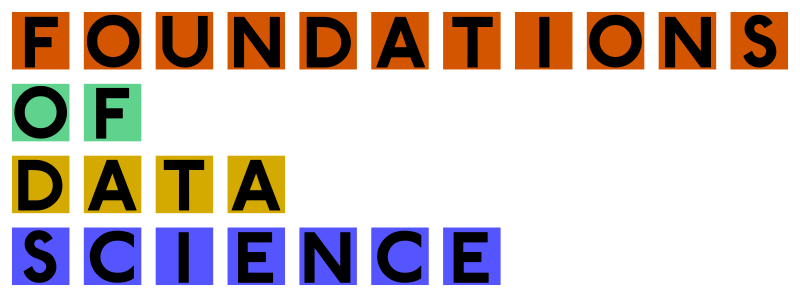INF2-FDS: Informatics 2 - Foundations of Data Science

Welcome!
We, the FDS course team, are looking forward to helping you learn about the Foundations of Data Science.
Where do I find things?
This Informatics Open Course Materials site is the main source for most course information, including:
- an overview of what we expect you to learn and how you'll be assessed
- the schedule and class and office hour times
- lab and workshop logistics
- course materials, including the lecture notes and slides.
On our course Learn site (linked to from this site) you will find information that requires a university login:
- important messages (via the Announcements feature)
- lecture recordings
- information about assessment, including:
- instructions and downloads
- due dates and late policy
- links to submission boxes
Piazza (linked to from this site and Learn) is our course discussion forum.
About the course
The amount of data is growing at an exponential rate, and it has the power to transform our world for better or worse. It's crucial that we learn how to collect, process and present data so that the conclusions we draw from the data are well-founded, and that we can communicate the results clearly both graphically and in writing. It's vital that we understand the legal frameworks that govern issues around data use, in particular privacy and licensing. We also need to go beyond the law, and consider ethical issues: for example, do we have the consent of the people providing the data in a survey and are the conclusions we draw valid? It's also fundamental that we understand how algorithms we use work, and how much confidence we should have in our results - which takes us into the realm of statistics.
In this course, we'll introduce these foundations of data science, using real world examples of data sets and ethical scenarios. You'll lean how to use Python libraries such as Pandas, Matplotlib and Seaborn to undertake data wrangling and visualisation. We'll introduce linear models both for explanation and prediction, and we'll give a taster of some machine learning methods, which are covered in more depth in later courses in Informatics degree programmes.